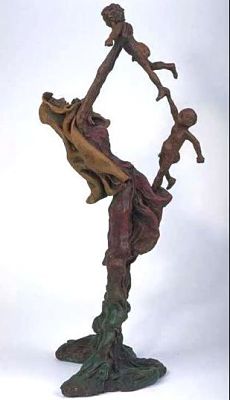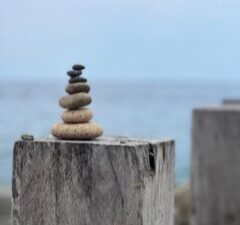I have been thinking about the Jacob and Esau story quite a bit lately. It came up in a message on a podcast a couple of weeks ago, and kind of lodged in my brain, poking its head up every so often to remind me that it is there. If you don’t know the story, it is in Genesis, chapters 25 through 33, and it is a fascinating story. I will hit a few points, and then try to share what has been forming in my mind.

Jacob and Esau were the twin sons of Isaac, who was the son of Abraham. These are important people in the narrative of the Old Testament and the formation of Israel. As the story is written, Esau was born first, and he came out manly and strong, covered in red hair. His father took to him immediately. But Jacob, the second born son was born holding on to the heel of his brother. He became the favorite of his mother. You can see where the tension is going to arise, can’t you?
Esau is a man of the field and of action, a skillful hunter who regularly brought the game from his hunts to his father. Jacob, we are told, was quiet and stayed close to home, and his mother. After one of his hunts, Esau came charging into the camp famished and demanding that his brother give him some stew. This was a moment Jacob had been waiting for, and he told Esau he would give him a bowl of stew in exchange for his birthright (his position of honor and privilege as the firstborn). Esau was too hungry to care, so he made the trade.
Later, with the help of his mother, Jacob tricked an aging and blind Isaac into giving him a blessing, which was a tremendous gift passed from father to son, and it should have gone to Esau. After that, the scheming Jacob ended up on the run until settling with relatives, taking a wife, and becoming wealthy. But he eventually had to face up to his past and go back to meet Esau in order to make things right. Along the way, he was changed by an encounter with the divine, and bore a limp for the rest of his days as a reminder.
The story is rather gripping, with action and deceit and showdowns and forgiveness. And one of the amazing thing about stories in sacred texts is that they have layers of meaning and may well speak to you differently every time you read them. One of the reasons why is that we read them through the lens of our own experience, overlaying them on our own stories. And those things change and evolve as we live and grow.
In light of the reckoning underway in America right now about the serious mistreatment of our black brothers and sisters, I think there is something in this story that speaks to us, but it may not be easy to hear. I am writing as a white man, and thus I am including myself in any criticism leveled therein. Here is what came to me a few days ago. I had to sit with it for a while and see what shape it would take.
I think most white Americans see ourselves more in Esau. We are the privileged first born, the people of action and adventure, who go out and take what we want. And we see the others (those with black or brown skin, who have an accent or a birth certificate from somewhere else) as the heel-grabbing Jacob, trying to take what is ours and push us aside.
For starters, anytime we try to read ourselves into these stories like this, we will hit some bumps and dead ends. But also, I think we have assigned the characters wrongly, at least in this current telling.
I think that Jacob represents the white experience more. We grab the heel of our brothers as if to say that you will only go as far as I allow you to go. We go to extremes to protect and hold on to what we think should belong to us, the privilege and power that we believe we are entitled to. And in so doing, we do often hold down our brothers and sisters of color.
Where the story gets problematic is with the parents picking favorites and then pitting the younger against the older, who seems to not be aware of what is happening until almost all his power has been taken. And then the younger son runs away, and with his fleeing, the chance of a reconciled relationship grows less and less likely.
When we act like Jacob-like, committed to taking and holding power, we damage the relationship with our brothers. And when we flee, whether to the comfort of our suburbs, or our clubs, or our theological certainty, we put distance between us that should not and must not exist.
I see that much of this dynamic has played out in race relations in America. We are watching it play out right now, every time a white person calls the police on a person of color who has done nothing more than exist in the same space. We see it in policies that make it so difficult for those in poverty to find a way out. We see it with inequities in housing and healthcare and education.
And those with power are now facing the same call that Jacob felt; to go back and face his brother; to make right some very old wrongs; to ask for forgiveness; and to work toward a healed relationship. And. Like Jacob, we need to realize that it will cost us something and the process will leave a mark on us as well.
There is much more that could be said, and plenty of other ways to read the story, but I think I want to stop here, but also to leave us with a question to ponder: If we have been like Jacob toward our brothers and sisters, what do we need to do in our own lives, and as a culture, to right the wrongs? Are we willing to do the work and pay the price? It is the only way to healing.
